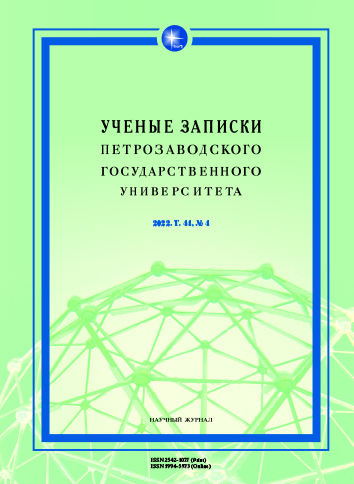СОВЕТИЗАЦИЯ ПЕТРА I В ПЬЕСЕ А. Н. ТОЛСТОГО «НА ДЫБЕ»: ПОИСК МАРКСИСТСКОЙ ФОРМУЛЫ ОБРАЗА ЦАРЯ
SOVIETIZATION OF PETER THE GREAT IN ALEKSEY TOLSTOY’S PLAY “ON THE RACK”: SEARCH FOR A MARXIST CONCEPT OF THE TSAR
Author(s): Maria G. GargyantsSubject(s): Cultural history, Diplomatic history, History of ideas, Russian Literature
Published by: Петрозаводский государственный университет
Keywords: USSR cultural memory; Aleksey Tolstoy’s play “On the Rack”; Soviet myth of Peter the Great; Sovietization of Peter the Great; Marxist historiography; literary debates; Soviet propaganda;
Summary/Abstract: The purpose of the article is to determine the range of contradictions that emerged during the discussion of the image of Peter the Great in the 1920s among literary scholars. For this purpose it was necessary to perform the following tasks: to show the main literary trends of Aleksey Tolstoy’s play “On the Rack” and to compare them with the ideological and political views of the intelligentsia of the late 1920s, as reflected in the reviews of the play’s production. The analysis of the “Petrine myth” at the initial stage of its emergence is urgent for today, as it enables us to consider the already implemented model of constructing a heroic image of one of the national rulers. It also helps us to understand how history can be gradually instrumentalized for the purposes of agitation and propaganda. As Frithjof Schenk’s famous research on the image of Alexander Nevsky has shown, the images of the national heroes of the past remain in the cultural memory of modern Russia in a modified form. In this respect, the figure of Peter the Great has always occupied a special place, because starting from the nineteenth-century historiography it has always been related with both negative and pathetic associations. The article demonstrates that this contradiction influenced the discussions about the “Petrine myth” in the late 1920s. It concludes that the views of the literary community representatives on Peter the Great were predetermined, firstly, by the primacy of historiographical evaluations of M. N. Pokrovsky’s school, secondly, by the desire to avoid the conclusions of the bourgeois historiography of the late XIX century, and, thirdly, by the fears to draw an overt analogy between the excesses of the Petrine reforms and the first years of the Bolshevik power formation
Journal: Ученые записки Петрозаводского государственного университета
- Issue Year: 44/2022
- Issue No: 4
- Page Range: 52-58
- Page Count: 7
- Language: Russian

